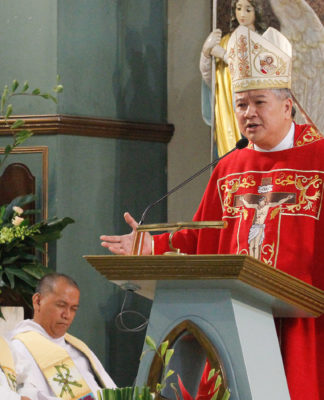PRESIDENT Macapagal-Arroyo is pointing the way toward a more effective and humane justice system when she certified as urgent the passage of a law to abolish the death penalty.
Even though the Philippines last served the death sentence in 2000 (on Alex Bartolome, a convicted rapist), it is among 26 countries worldwide that have stopped carrying out executions despite an existing law on capital punishment.
While it is asserted that the death penalty deters criminality and other forms of lawlessness, international human rights advocates and the Roman Catholic Church have always maintained that penalties should be rehabilitative, not putative, and that capital punishment is cruel and inhumane.
It is also doubted whether the death penalty indeed deters crimes. With over 86 countries having completely abolished the death penalty and 11 states banning death as punishment except for “war crimes,” the death penalty is now viewed by more and more countries as ineffective against preventing crime.
Moreover, the most recent study conducted for the United Nations said there is no proof that capital punishment is more effective in preventing crime than other less brutal punishments like reclusion perpetua or life sentence.
The new policy of the Arroyo administration can now be seen by pro-life groups and the Church as a means to end a perennial debate that has affected Filipino politics since the Congress revived the death penalty in 1994 after its abolition by the 1987 Constitution..
The first section of Republic Act 7659, the death penalty law, states that the government must “ensure not only obedience to its authority, but also to adopt such measures as would effectively promote the maintenance of peace and order, the protection of life, liberty and property… which are essential for the enjoyment by all the people of the blessings of democracy in a just and humane society.”
However, by wielding the power to destroy life, the state fails to justify all efforts to protect the life of its citizens. Further, the Philippine constitution prohibits any barbaric or inhumane act as punishment, even in the guise of lethal injection as a “mild” method.
Death is death; and lethal injection is just as inhumane. Catholic teachings uphold that criminals and sinners have the ability to repent and change, if given the opportunity.
As such, the state must give that opportunity—a more civilized penal system including decent facilities, reasonable policies, and justifiable laws—to people who are convicted of crime, with the goal of making society a better place by cultivating justice, and not by exacting “an eye for an eye; a tooth for a tooth.”
Part of the strong critique against the death penalty is its bias against the poor, who almost always end up on the wrong end of justice. According to a study citing a Supreme Court decision in 2003, lower regional trial courts erroneously mete out over 72 per cent of convictions. Further, corruption has made a judicial trial into a marketplace where decisions can be bought. People frastrated about the system have even resorted to extra-judicial means like vigilantism.
Truly, crime is a horrendous threat in any society, and it must be quashed. But the government must find humane and equally effective ways to prevent it. Let her start by passing Ilocos Sur Rep. Salacnib Baterina’s consolidated House Bill 4826, titled “Act Prohibiting the Imposition of Death Penalty in the Philippines.”














